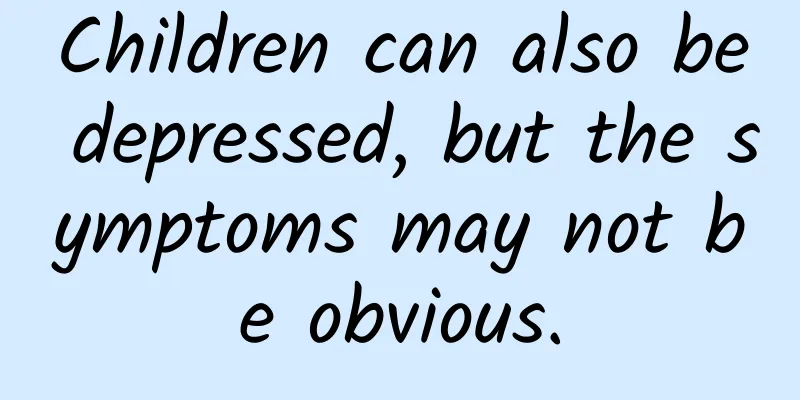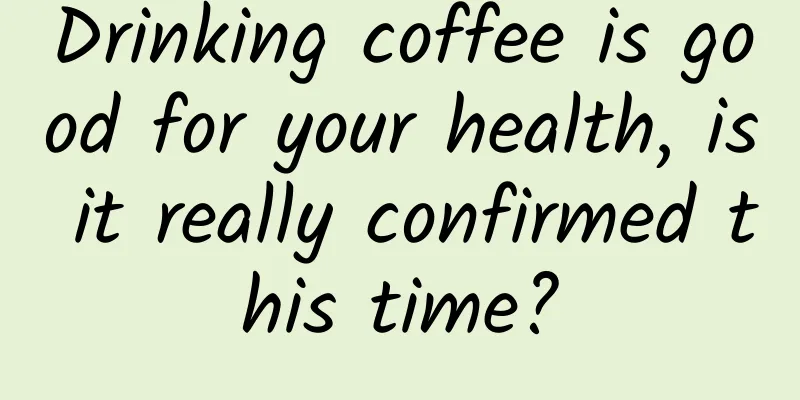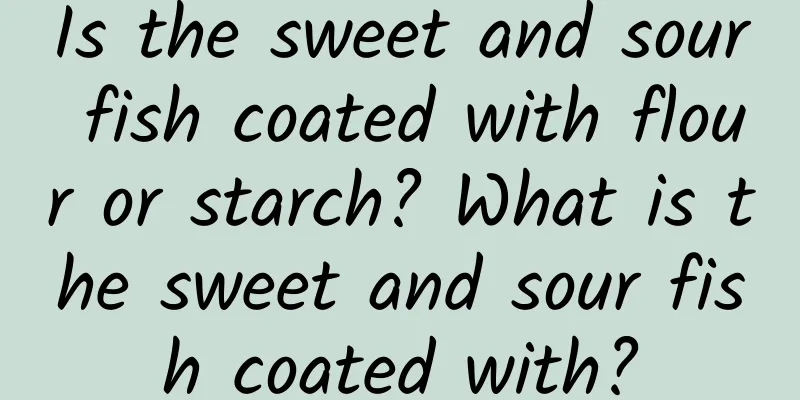Children can also be depressed, but the symptoms may not be obvious.

|
Author: Gao Chang, Associate Professor, Jining Medical College Reviewer: Wang Changhong, Chief Physician, Second Affiliated Hospital of Xinxiang Medical College Depression, silence, loss of interest, insomnia, reluctance to go out, palpitations, panic, depression, pessimism... When children have these symptoms, it may not just be a bad mood or physical discomfort. Depression, which was once thought to be only suffered by adults, is becoming an "invisible killer" that affects the physical and mental health of children. So, how does depression target children? Why do healthy children become depressed? Figure 1 Copyright image, no permission to reprint 1. Why do children become depressed? Depression is a type of mood disorder with significant and persistent low mood, slow thinking, cognitive impairment, decreased willpower and physical symptoms as its main clinical features. It is not what people call "psychological fragility" or "pretentiousness". Childhood depression is no exception. Often, childhood depression is caused by a variety of factors. In addition to genetic factors, the influence of family, school, environment and other factors may cause a depressed child to fall into depression. Sometimes, a negative event may also trigger depression, such as experiencing a major change or accident in life, endless quarrels among family members, parents' separation, the death of a loved one, or parents being separated from their children for a long time. These events will put pressure on the child's young mind. External environmental factors are also the culprit of depression. For example, if a child is bullied at school for a long time, discriminated against or even abused by classmates, does not feel warmth at home, and is subjected to cold violence by his parents, such children are prone to strong depression. In addition, in today's society, many parents have too high expectations for their children. No matter how hard the children try, they can never meet their parents' expectations, which can easily cause great psychological pressure on the children. The children will eventually suffer from depression, low mood and other mood disorders because they cannot bear the heavy psychological burden. What are the symptoms of depression in children? The external manifestations of depression in children are slightly different from those in adults. Children do not necessarily show low moods, but sometimes become more irritable, or even express negative emotions through anger, so they are often mistakenly classified as problem children, which can easily lead to missed diagnosis. In addition, some children may hide their depression, which requires careful observation of the children to see if they have the following symptoms. •Typical characteristics: Unwilling to socialize with others, withdrawn, isolated, indifferent to peers and things happening around them, and not interested in anything. •Self-blame and self-deprecation: Always think that you are stupid and bad, and at the same time you are very sensitive and easily feel pessimistic. • Helplessness: Sometimes you may feel extremely helpless because you do not get the expected care, companionship, attention or timely guidance, and you may show self-pity, dependence on others, and stronger helplessness and hopelessness than before. Figure 2 Copyright image, no permission to reprint • Indifferent response and lack of motivation: lack of interest in learning activities, lack of enthusiasm, poor academic performance, slow thinking, and difficulty in completing in-class and extracurricular learning tasks. • Personality becomes strange: Some children may become stubborn, irritable, easily lose temper, have periodic mood swings, and have attacks without signs. They may be provocative, have destructive and aggressive behaviors, and even engage in self-harm and self-mutilation. •Physical symptoms: headache, abdominal pain, insomnia, lack of appetite, weight loss, migratory pain or itching all over the body, etc. Because depression is mainly manifested by low mood, children with depression may reduce their activities, so such children are often not noticed and easily ignored by their family, teachers or classmates. When preschool children suffer from depression, they may show anger, irritability, abnormal dependence on parents, physical pain and other symptoms, which should attract the attention of parents. How to treat depression in children Although the onset of childhood depression is insidious, as more and more researchers and doctors turn their attention to the diagnosis and treatment of childhood depression, the diagnosis and treatment of depression in minors is gradually becoming formalized and personalized. In the treatment of childhood depression, child patients should not be treated as "miniature" versions of adults, but should be treated individually based on the physiological and psychological characteristics of children of different age groups. First of all , psychologically, the core of depression is self-attack, and even taking all the responsibility on oneself. Many children turn to attacking themselves because they cannot directly express their anger towards their parents, so the first thing parents should do is to change the way they discipline their children, give their children full freedom, and do not judge them too much no matter how they behave. In addition, parents should encourage their children to express their anger, so that they can feel that their parents can bear it and are willing to reflect on themselves. If the child is still young, you can encourage the child to express it with body language, such as parents can put a pillow on their body and encourage the child to hit the pillow with his fist to vent his anger. When children show regressive behaviors, such as sleeping all day, raging, shouting, and swearing, these are healing signs that are worth celebrating. These signs indicate that the child's inner heart is being cleared and restored. At this time, parents should not be suspicious or afraid of their children's regressive behaviors, but should treat them with a normal mind or even a more tolerant attitude. Figure 3 Copyright image, no permission to reprint Secondly , drug treatment can be carried out according to the physiological characteristics of children. Compared with adults, children's liver and kidneys are relatively larger, with more body fluids, and less fat and plasma protein. These physiological characteristics play an important role in drug metabolism and can make the drug effect more obvious. For mild to moderate pediatric depression, cognitive behavioral therapy can be used as the main treatment, and drug therapy can be used as an auxiliary treatment. For severe pediatric depression (children over 8 years old), drugs such as fluoxetine can be used. The latest research shows that serotonin reuptake inhibitors are more effective than other antidepressants, and cause fewer adverse reactions and suicidal tendencies. They can be used as a common drug for treating pediatric depression. However, it should be noted that one of the characteristics of childhood depression is that it is prone to recurrence. Therefore, after the acute phase of depression symptoms are relieved, consolidation drug treatment should be continued for 6 to 12 months, which can effectively prevent recurrence. During the maintenance treatment, cognitive behavioral therapy and psychological counseling can be considered for consolidation to reduce sequelae. After a period of consolidation treatment, the child should be evaluated to determine whether to stop the medication or continue maintenance treatment. When choosing treatment drugs, you should consider drugs that have been used in the past and have achieved good results. If you consider stopping the drug, you should gradually reduce the dosage and stop using it within 6 weeks. A large amount of data shows that the prevalence of depression among Chinese children is gradually increasing. However, according to the World Health Organization, less than 50% of depression patients worldwide receive treatment, and if we look at the child population alone, this number may be even lower. Therefore, children's depression needs more attention, and it is necessary to detect it in time and help them receive formal treatment. The recovery of a child's mind is like a "major operation" that requires parents to treat it with more tolerance and patience. References [1] Li Zejun, Liu Shouhuan, Shi Xuewen, et al. Advances in diagnosis and treatment of depression in children and adolescents[J]. Chinese Journal of Maternal and Child Health, 2020, 35(14): 2732-2734. |
<<: Top search! Aspartame may cause cancer? Can we still drink sugar-free beverages?
>>: Embrace your vulnerable self: How to accept yourself
Recommend
How to prevent baldness and hair loss? Why are boys more prone to baldness than girls?
Baldness and hair loss are something that many pe...
Will twins bleed if one of them stops growing?
In the early stages of pregnancy, the growth and ...
[Teach you how to dress] How do girls with big frames dress?
Dressing is one of the most concerned topics for ...
What to do if you have a cold and runny nose during pregnancy
The physical health of pregnant women is what the...
What is the reason why girls have firmer flesh?
Everyone has flesh on their body. Some people hav...
Why do I keep farting during the confinement period?
Don't worry too much if you always want to fa...
What causes yellow urine after childbirth?
Women's bodies are usually weak after giving ...
Pregnant women always have diarrhea
It is a common phenomenon that pregnant women alw...
Girl's development process picture
Parents should have an understanding of their chi...
HPV vaccine in Beijing
What are the side effects of the HPV vaccine? The...
Does taking aspirin together with antihypertensive drugs have any effect? Pharmacists tell you
An elderly friend asked Huazi that he had high bl...
Why does a woman’s lower abdomen feel bloated and painful?
Many people have experienced abdominal pain in th...
Does eating frozen meat for a long time have any effect on the human body?
I believe that many people have been storing froz...
Can I drink Siwu Decoction during menstruation?
Women must pay attention to daily health care mea...
What does it mean when a boy's breathing becomes heavier? Will his whole body get hot when he wants to have sex?
Why does a guy's breathing become heavier and...









